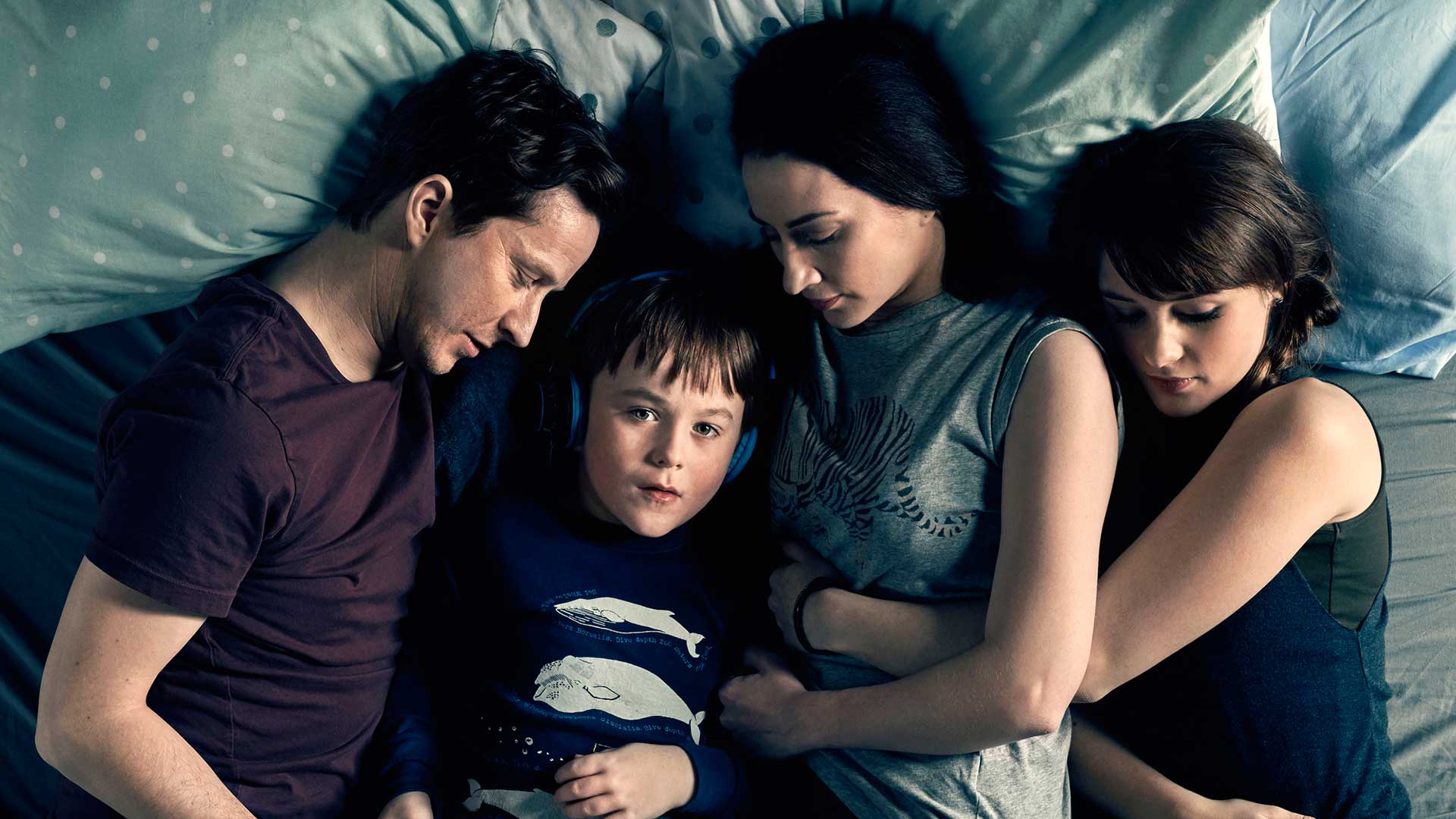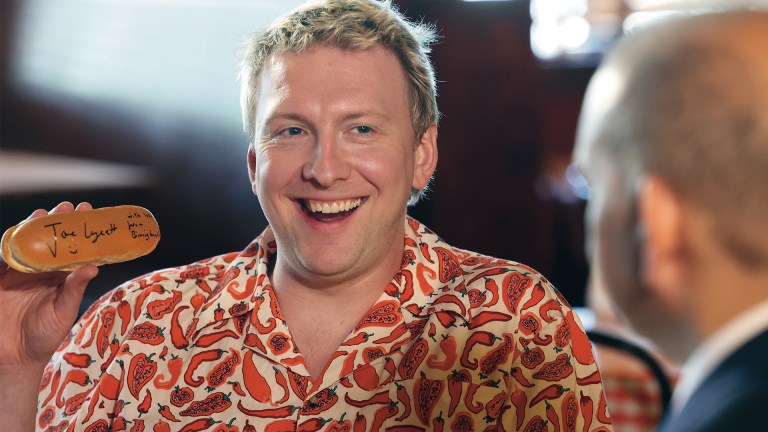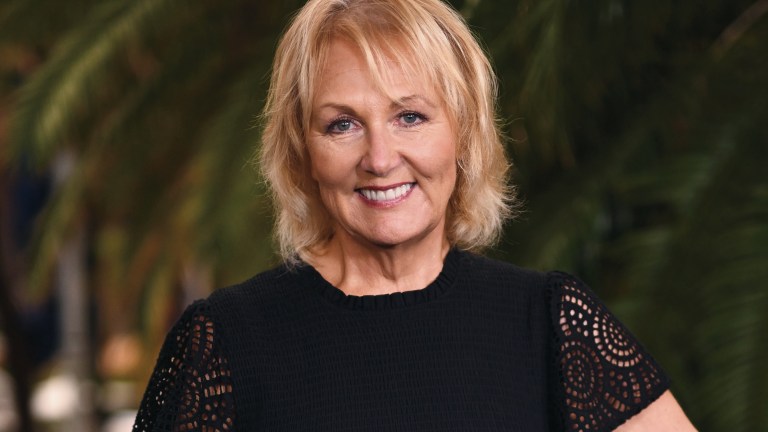Full of wisdom, wit and compassion, over six episodes The A Word shows the stages of Joe’s diagnosis with an Autism Spectrum Disorder [ASD] and the effect on his family – fine performances from Morven Christie and Lee Ingleby as his parents, plus Christopher Eccleston as granddad Maurice – and the response of the community.
As the series draws to a close, fittingly, at the end of Autism Awareness Month, we have seen the parents’ fear that their son will be isolated at school, their arguments, their feelings of helplessness and anxiety at their inability to control the situation, as well as fleeting moments of hope and progress. The feeling is of a family with a lot of love but no ready means of expressing or receiving it.
There is a big responsibility on Bowker to get it right. Autism touches the lives of 2.8 million people in the UK every day, according to The National Autistic Society. Pop culture has approached it before, and Bowker cites Mark Haddon’s The Curious Incident of the Dog in the Night Time as a “towering achievement” for the way “we never doubt the character’s pain but we can simultaneously celebrate him”.
Scapegoating is so prevalent that anything in my work that might help celebrate difference, I am proud to put out there
“In The A Word, Joe is probably in the middle of the autism spectrum. He has developmental delay, a problem with his auditory processing, he has echolalia – that thing of echoing key phrases back at you,” says Bowker. “He has a difficulty processing emotion, language and a learning difficulty. At five, there is not much difference between him and his peer group. But they can see it coming.
“I was interested in what that does to a couple, what it does to a family. What I hope is that families see we have hit some emotional truths of what this feels like. And I really hope that after six hours it is also some sort of celebration of that child.”
Advertising helps fund Big Issue’s mission to end poverty
This brings us to key themes running through Bowker’s work. The celebration of outsiders, a focus on people who are marginalised, as well as a dissection of what he calls “the pernicious myth of the perfect family”.
“Selfishly, as a writer, it is fertile ground to look at people who are regarded and treated as different,” says Bowker. “Whether that be soldiers returning from an unpopular war in Occupation or Neil Baldwin in Marvellous with his magnificently off-kilter worldview that seems so much healthier than ours. I wanted to write about having a child that is different. Because I feel that diversity and difference, far more than tolerated, should be celebrated.
“Politically, scapegoating is so prevalent that anything in my work that might help celebrate difference, I am proud to put out there. And I don’t call that having a liberal agenda, I call that being a decent human being.”
Autism and Asperger syndrome activist Anna Kennedy agrees. In her recent TED talk, the campaigner, who set up a school for autistic children and a community college after her children were turned away from mainstream education, talked of her experience following her sons Patrick and Angelo being diagnosed as having an ASD.
“Parents of children with autism are hungry for information,” she said. “I knew nothing about autism, all I knew was the film Rain Man. I’ve had a crash course in everything you can imagine. I used to be very quiet but since my sons have been diagnosed, it is like a fire has been lit.”
I wanted his autism to be more, for want of a better word, ordinary
Speaking to The Big Issue about The A Word, Kennedy says: “I could really identify with the mother played by Morven Christie. It kicked in when the assessment started. The way they try to cover up when Joe isn’t answering questions. You see the parents willing him to answer. When they are told that Joe is autistic, the way she turns to look at her little boy – who is still the same but has a label now. That was really touching and well acted.”
Advertising helps fund Big Issue’s mission to end poverty
Kennedy says parents with children at the severe end of the spectrum might have been hoping to see their experience mirrored on screen, and points out that Joe’s diagnosis was quicker than she has encountered. But she adds: “A scene in which Joe is the only boy not invited to a child’s party is something we hear a lot. Parents are even told not to bring their children into schools if Ofsted inspectors are coming.”
Unlike many on-screen depictions of autism, Joe has no unusual “compensatory gift”. Bowker reflects that Rain Man “probably started a tendency to embrace that part of autism but not the tough bit”.
“I wanted his autism to be more, for want of a better word, ordinary,” he explains. “I think most people’s experience of having a child with autism is closer to the experience of Joe than either extreme of the savant or the distressed child like ones I worked with, who could not stop themselves banging their head against the floor unless they are left to their own devices.”
That said, Joe possesses an unusual ability to recall facts about his dad’s collection of indie records. The world he creates for himself is soundtracked by Buzzcocks, The Only Ones, Julian Cope and The Wedding Present. An indulgence by the writer, who shoehorned in many of his favourites? Not so.
“I wanted to create a behaviour for this boy that simultaneously seemed to indicate that he was socially engaged but succeeded in keeping the world at arm’s length,” says Bowker. “But there is also ambiguity in indie lyrics. It was a nice metaphor for those hidden things under language that are hard to read. I use music a lot, it is that Dennis Potter thing about the potency of cheap music. It cuts to the chase, cuts to your heart.”
So, as Autism Awareness Month draws to a close, where does Bowker think we are now, in terms of Silberman’s quest to encourage us to think smarter about people who think differently?
Advertising helps fund Big Issue’s mission to end poverty
“I think we have gone through ignorance but we are still in the middle of acceptance,” he says. “And what we need to go forward to is celebration…”
The last episode of The A Word is on tonight at 9pm, BBC One. Catch up with the series on iPlayer










